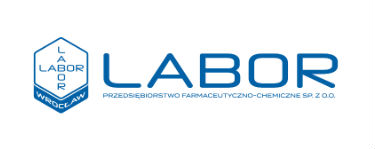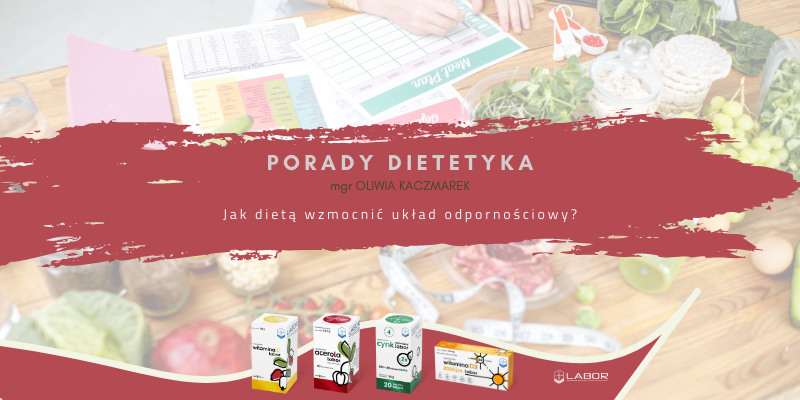In the autumn and winter period, there is an increased risk of contracting infections. Each of us wonders how to help the body fight microbes. The immune system is an integral part of other body systems, including the digestive system, so it is worth paying attention to what foods we eat. Undoubtedly, in building immunity, physical activity, adequate sleep, avoiding stress and proper nutrition are of great importance. But what is the best immunity-building diet?
Products that are anti-inflammatory, antibacterial and antiviral should be provided for the best function of the immune system and to reduce the rate of infection.
Vitamins and minerals
During an infection, it is worth ensuring an adequate supply of products containing vitamin C (ascorbic acid), which may shorten the duration of the disease and reduce the severity of cold symptoms. In addition, ascorbic acid seals blood vessels and protects, among others. cells of neutrophils, lymphocytes and macrophages against oxidative stress increased during infection, i.e. disturbance of the balance between free radicals and antioxidants in the body. The best sources of vitamin C are: rosehips, acerola (Acerola LABOR), currants, cranberries, raspberries, kiwi, citrus fruits, peppers, parsley, Brussels sprouts, kohlrabi and cabbage, especially sauerkraut. It should be remembered that vitamin C is very sensitive to high temperature and oxygen, so products rich in this ingredient are best eaten raw (salads, juices) or cold (frozen fruits).
Due to its multidirectional action, the role of vitamin D is crucial for maintaining health and the proper functioning of the body. It is responsible for the activation of cells involved in immune reactions, stimulates the production of antibodies and the regulation of the innate (non-specific) and acquired (specific) immune system. The best way to get vitamin D is skin synthesis as a result of sunlight. However, in the autumn and winter period, clouds prevail in our latitude and the majority of the Polish population suffers from deficiencies of this vitamin, so it is worth considering supplementation (e.g. Vitamin D3 2000 IU LABOR). Food sources of vitamin D are oily sea fish, including salmon, herring, eel, mackerel and tuna. In smaller amounts, it can be found in egg yolks, liver, butter, cheese and mushrooms.
One of the most important minerals influencing immunity is zinc. It stimulates the thymus to work, while activating the production of T lymphocytes, which are responsible for the destruction of viral and bacterial pathogens. Numerous studies confirm the effectiveness of zinc in fighting cold and flu viruses. Additionally, it was concluded that zinc supplementation shortens the duration of upper respiratory tract infections and reduces the symptoms of the disease. At the first symptoms of a cold, you can use LABOR Organic Zinc, which will supplement your diet with this micronutrient. The main sources of zinc in food are: buckwheat, brown bread, meat, fish and seafood, eggs, legumes, pumpkin seeds and almonds.
Omega-3 fatty acids
Particular anti-inflammatory properties are attributed to omega-3 polyunsaturated fatty acids. A number of these acids include: decosahexaenoic acid (DHA), eicosapentaenoic acid (EPA) and ?-linolenic acid (ALA). They influence the formation of anti-inflammatory factors and the synthesis of cytokines, i.e. proteins responsible for the functioning of the immune system. The sources of these acids are: rapeseed oil, olive oil, linseed oil, chia seeds, linseed, hemp oil, avocados, almonds, walnuts, pistachios and oily sea fish (salmon, sprat, herring).
Probiotics
The proper condition of the intestinal microflora is essential for maintaining health, including the proper functioning of the immune system. Probiotics are live microbes that help maintain the right balance between the beneficial bacteria that live in the gut and pathogens. Probiotic bacteria stimulate protective reactions of the intestinal epithelium, adhering to it, they create a protective barrier against pathogenic microorganisms. Natural probiotics can be found not only in fermented milk products (kefir, yoghurt, buttermilk, sour milk), but also in pickled cucumbers and sauerkraut.
Natural immune boosters
Garlic, considered a natural antibiotic, contains the active ingredient alliin, which is broken down in the body into allicin that has antibacterial properties. The essential oil in garlic is effective against anaerobic bacteria that cause infections in the mouth and upper respiratory tract. In addition, garlic oil regulates the functioning of the bacterial flora in the intestines.
Ginger is a medicinal plant that has found its application in the treatment of many diseases, including rheumatoid arthritis (RA), indigestion, inflammatory diseases and sore throat. It owes its properties to the presence of bioactive substances: gingerols and shogaols, showing antioxidant, anti-inflammatory, analgesic, antibacterial and antiemetic properties.
Honey contains monosaccharides, oligosaccharides, polysaccharides, vitamins (C, PP, B group), minerals (potassium, iron, calcium, phosphorus), pollen and nectar enzymes (including invertase, lactase, amylase and phosphatase) and some amounts of organic acids (lactic, malic, butyric). The antibacterial effect of honey is mainly due to the presence of hydrogen peroxide. Its healing effect will be used primarily in colds and throat inflammations. It is worth remembering that honey loses its properties under the influence of high temperature, so you should not add it to a hot drink or dish if you want to take advantage of its health properties.
Turmeric is appreciated all over the world for its beneficial therapeutic properties. Its main ingredient is curcumin, which is responsible for the characteristic yellow-orange color. In addition, it contains many minerals (iron, magnesium, calcium, zinc), as well as a number of B vitamins and vitamins E and K. Thanks to its properties, turmeric can help prevent diseases by inhibiting the spread of viruses, bacteria and pathogenic fungi.
Bibiography :
? Dymarska E., Chęcińska-Maciejewska Z., Grochowalska A., Krauss H., Naturalne modyfikatory odpowiedzi immunologicznej Natural immune response modifiers, Probl Hig Epidemiol 2016, 97(4): 297-307
? Joanna M. Wierońska, KURKUMA ? ROŚLINNE PANACEUM, Wszechświat, t. 118, nr 4 ?6/2017.
AUTHOR: mgr Oliwia Kaczmarek




